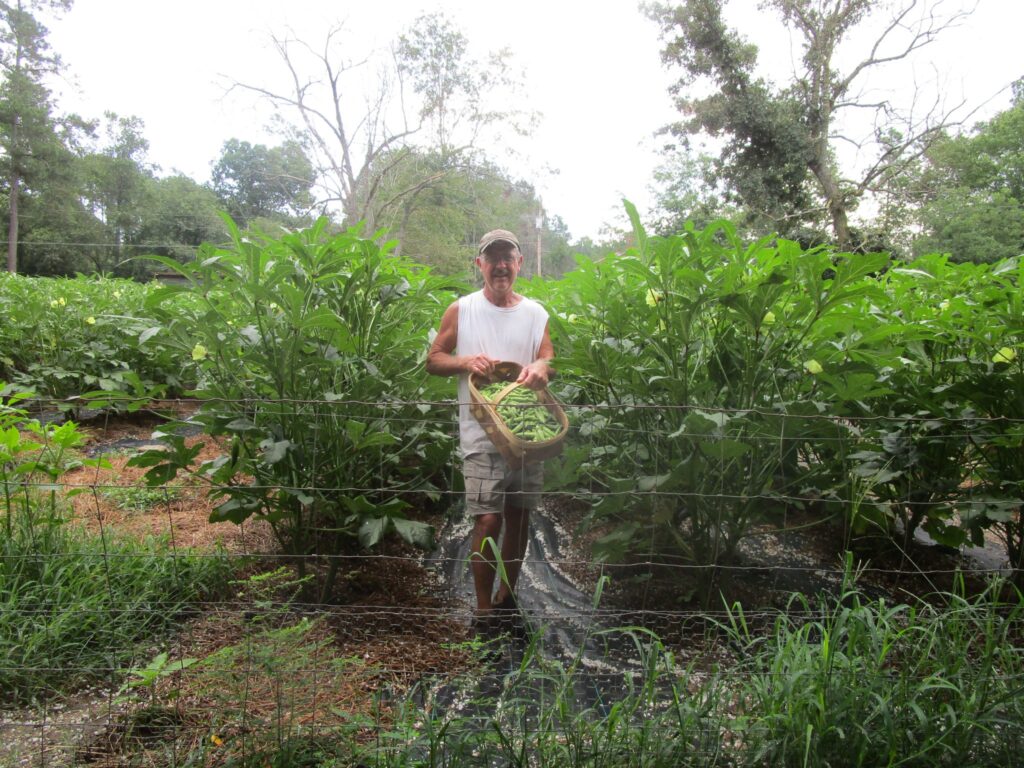Aiken, South Carolina
Acres U.S.A has been telling the stories of farmers for over 50 years. We wanted to start revisiting some of these farms to see how things have progressed over the intervening years.
We featured Samaria Farm in Aiken, South Carolina, in our January 2018 issue — about five years ago. Sam and Maria (SAM and mARIA!) Stevens and their family raise Jerseys and goats for raw milk sales, as well as eggs, pork, beef, and vegetables.
Here’s some of what they told us five years ago — followed by a more recent conversation on what’s changed and what’s remained the same.
Farmers: Sam & Maria Stevens and family
Farm size: 10 acres
Year established: 2007
Contact: 803-645-5111; Facebook page
Why did you begin farming?
I grew up farming as a lifestyle. I milked goats before going to school every day when I was in elementary school. We raised our own chickens and pork and had a large vegetable garden. So when I decided to marry and raise a family, I did the same. Giving kids farm chores teaches them responsibility. Now they all have their own little sections of chickens, etc., that they raise to sell.

Have you always been an eco-farmer, or did you make a change?
We switched to the more organic side of things about 15 years ago after reading all the articles in Acres U.S.A. about Roundup, etc.
What is your biggest current challenge?
Consistent milk sales — one week you’re out and the next week you are feeding it to the pigs.
What is the best piece of advice you ever received about farming?
Don’t bite off more than you can chew. Trying to have more livestock than your land will provide for is a mistake I see a lot of folks try to do.
What do you see in store for the future of sustainable farming?

People want to know where their food comes from and what’s in it. There is a bright future ahead, but there sure is a lot of work to be done.
| It’s 2022 now; are you still milking cows? Has the regulatory environment changed at all for that? We are still milking. No, none of the regulations have changed. I’m just having to sell milk for $10 a gallon now. Raw milk is legal in South Carolina for human consumption, and we now have our own on-farm store. One of the things you mentioned a few years ago was variability in milk sales; is that still a challenge? We sell out every day. I don’t know where the bottom is on raw milk. I have not found it. That’s a great problem to have! What else is more or less challenging than it was five years ago? Hay and feed is the crisis right now. We’re still processing chicken and pork and eggs, but hay is almost impossible to get. I used to pay $50 for a round bale and now it’s $75. And fertilizer has just jumped up to crazy levels. But you’re able to sell everything you produce? We are. We’re growing way more vegetables than we were five years ago. People were just asking for it. Five years ago I was going to the Aiken farmers market; I’m not doing that anymore. They shut it down for COVID, so I opened up here at the farm — I turned half the barn into a store, and that’s been the best thing ever. And I’m not in town — I’m 10 miles out of town. But people still come. It’s been unreal. And are your children still helping on the farm? Oh yes, they’re still here and helping. Two have moved out, but we still have four here. What do you see in store for the future of regenerative agriculture? We just can’t produce enough! We process about a hundred chickens a month, and in a week they’re gone. We just can’t grow chickens and hogs fast enough. |
















